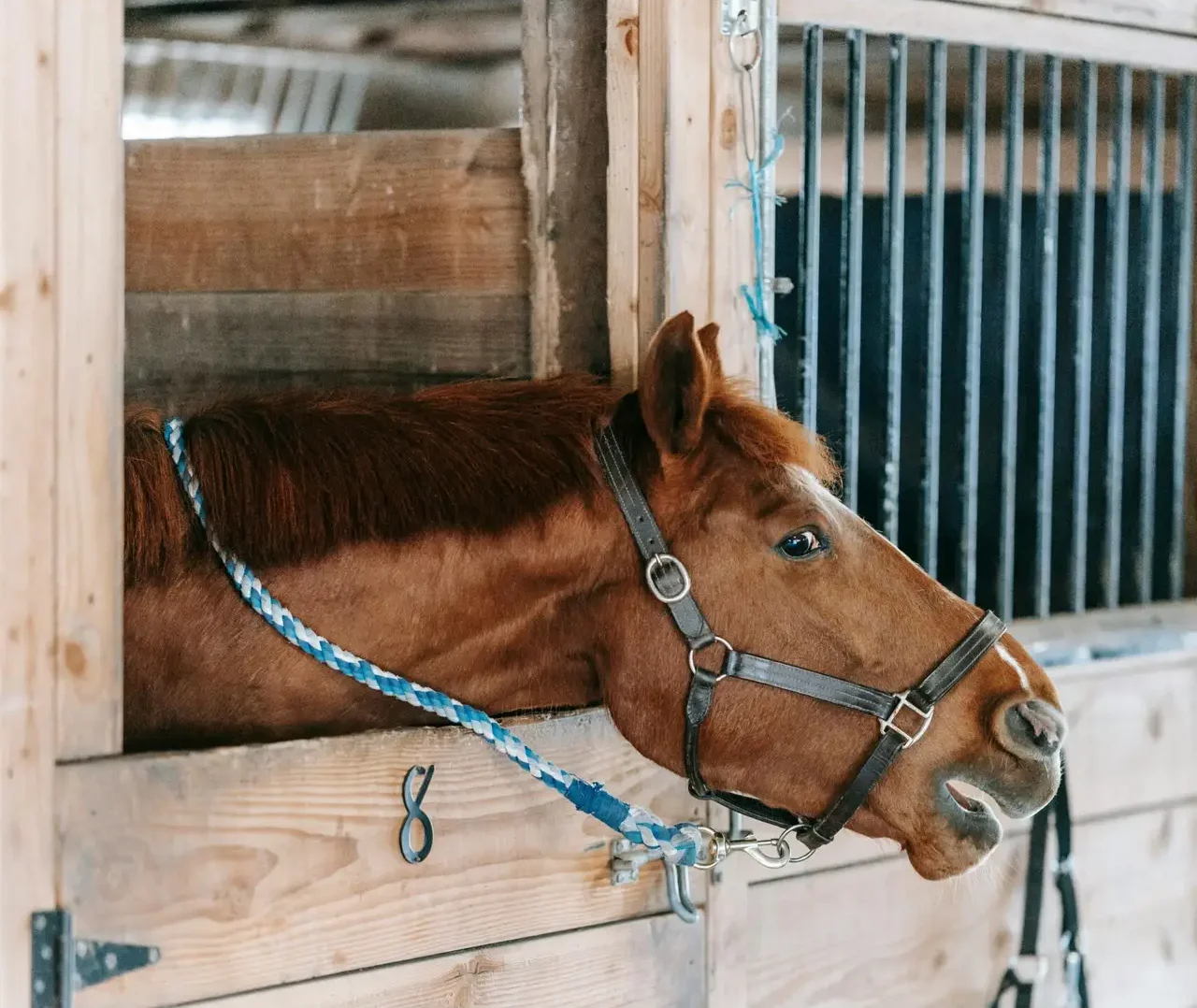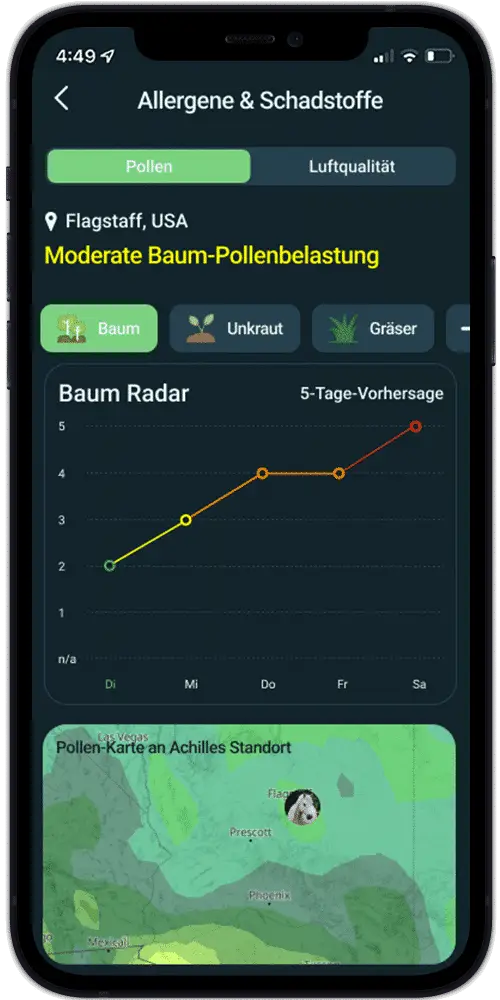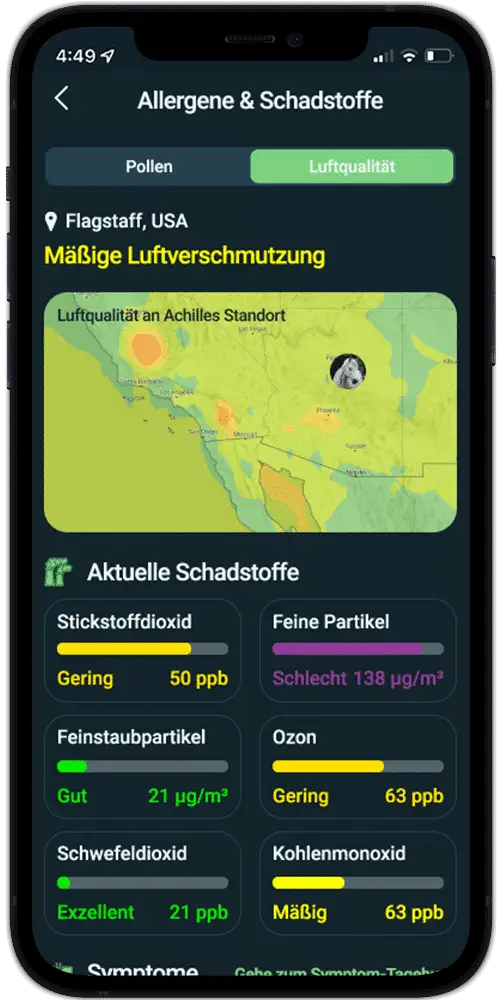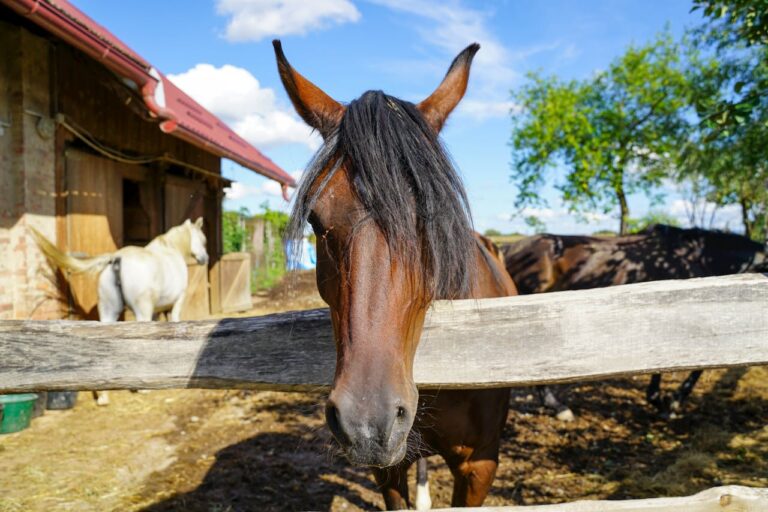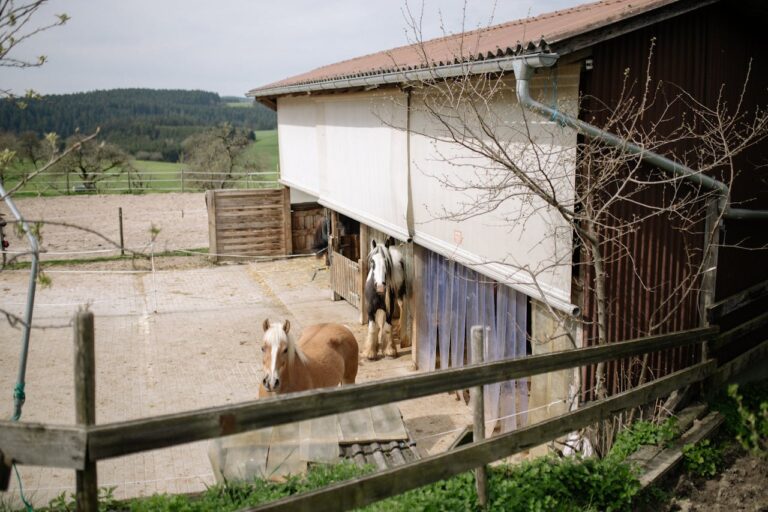Equine Asthma is a chronic inflammation of the respiratory airways that varies in severity. While mild forms can go unnoticed, horses with severe asthma experience intense coughing, breathing difficulty, and decreased stamina.
Symptoms of Equine Asthma
- Coughing: Especially after standing up or during exertion
- Nasal Discharge: Clear, whitish, or yellow mucus
- Breathing Difficulty: Labored breathing, flared nostrils
- Decreased Stamina: The horse tires more quickly
- Weight Loss: In severe cases, asthma affects appetite
The most common cause of coughing in horses is hypersensitivity to dust particles in the stable. Hay, straw, bedding, but also mold spores and pollen in the stable air can irritate the horse’s sensitive airways and cause inflammation. Grass pollen in particular triggers allergies in many horses, which can exacerbate asthma.
Serious Progression: What Happens with Equine Asthma?
When exposed to allergens, the immune system overreacts: the airways become inflamed, mucus production in the bronchi increases, and the muscles around the airways tighten. The result? Narrowed airways, making breathing difficult and reducing the oxygen that reaches the lungs.
Long-Term Consequences: A Vicious Cycle
If left untreated, Equine Asthma can lead to permanent lung damage. The bronchial walls thicken, lung tissue loses elasticity, and breathing remains strained.
The Good News: You Can Protect Your Horse!
Equine Asthma is not curable, but with the right care and management, you can minimize symptoms and help your horse lead a comfortable life.
1. Optimize Stable Conditions: Create a low-dust environment.
- Feeding: Moisten the hay and offer it on the ground to avoid dust formation.
- Bedding: Use low-dust bedding such as wood shavings or peat and avoid straw.
- Stable hygiene: Ventilate the stable well and muck out regularly.
- Exercise in the fresh air: Let your horse outside as often as possible, preferably in a well-ventilated open stable. This reduces exposure to dust and pollen.
2. Work with a Veterinarian: Diagnosis and Treatment
If you suspect equine asthma, you should definitely contact your vet. They can confirm the diagnosis with various examinations such as a bronchoscopy or a lung function test and initiate appropriate treatment. Special inhalation devices, such as the Sahoma2 from Nebu-Tec, can also be used to relieve your horse’s airways.


